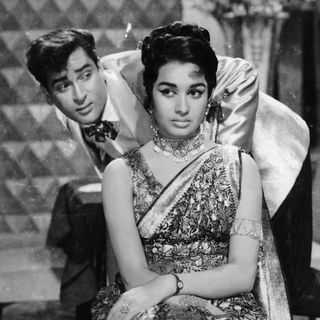In It’s Okay, we defend our most embarrassing, unpopular opinions.
A sexist remark at work, a slut-shaming comment, an online insult, or gaslighting from a partner — every person who is not a cisgender, heterosexual man, on a daily, weekly, monthly, yearly basis, experiences others trying to override their opinions, agency, and consent. It happens in big and small ways, causing intense anger, hurt, and disappointment. But the average response, more often than not, stays the same — take the high road, don’t stoop to your aggressor’s level.
Taking the high road, in all its stoic glory, is often considered the optimal response in situations of interpersonal conflict. It’s considered a marker of being cultured and ‘grown-up,’ further reinforced by non-confrontational attitudes glorified in collectivistic societies like India’s. But when taking the high road gets twisted into staying silent and not unleashing anger and disappointment — as it so often does for women and other disadvantaged groups — taking the high road is more an exercise in compliance, than it is in maturity. And it’s an exercise harmful to health and well-being.
Research shows emotional suppression is detrimental to people’s health, linked to earlier death and the onset of several mental health issues. In women, especially, suppressing anger can lead to even more anger long term, research shows.
Related on The Swaddle:
From ‘Cunt’ to ‘Careerwoman’: The Many Ways in Which Language Propagates Sexism
And women’s compliance is a crucial obstacle in the fight to achieve gender parity, be it in workplaces, interpersonal relationships, or society at large. We see it in how popular rhetoric turns against women who speak up, completely disregarding the high road or any notion of silent sophistication. It’s why U.S. Representative Alexandria Ocasio-Cortez’s outspokenness caused a fellow politician to call her a “fucking bitch,” or why Bollywood actresses are deemed to be “ranting” or “lashing out” by Indian media when they speak about personal issues, or why women’s collective revelations during the #MeToo movement immediately led people to tone-police them and cook up scenarios in which the women could be making up their accusations.
Women’s anger incites disbelief at their courage to be able to display it, especially when set against generational silence that has set standards of non-confrontational compliance in the face of the darkest of oppression and tragedy. Ignoring the high road, then, becomes an exercise in challenging the status quo, of letting those who hold social capital know they’re in the wrong and that their patriarchal hegemony is unacceptable.
As Soraya Chemaly writes in Rage Becomes Her, “Anger … is communication, equality, and knowledge. It is intimacy, acceptance, fearlessness, embodiment, revolt, and reconciliation. Anger is memory and rage. It is rational thought and irrational pain. Anger is freedom, independence, expansiveness, and entitlement. It is justice, passion, clarity, and motivation.
“Anger is an assertion of rights and worth. In Anger, whether you like it or not, there is truth.”




